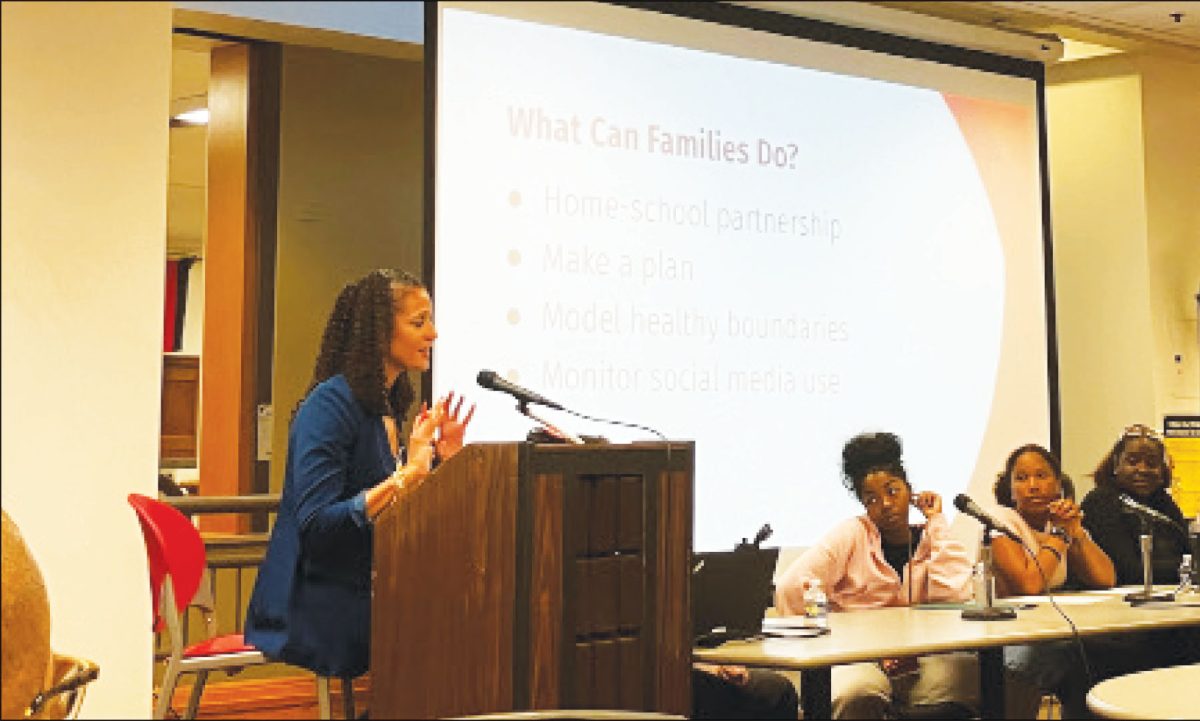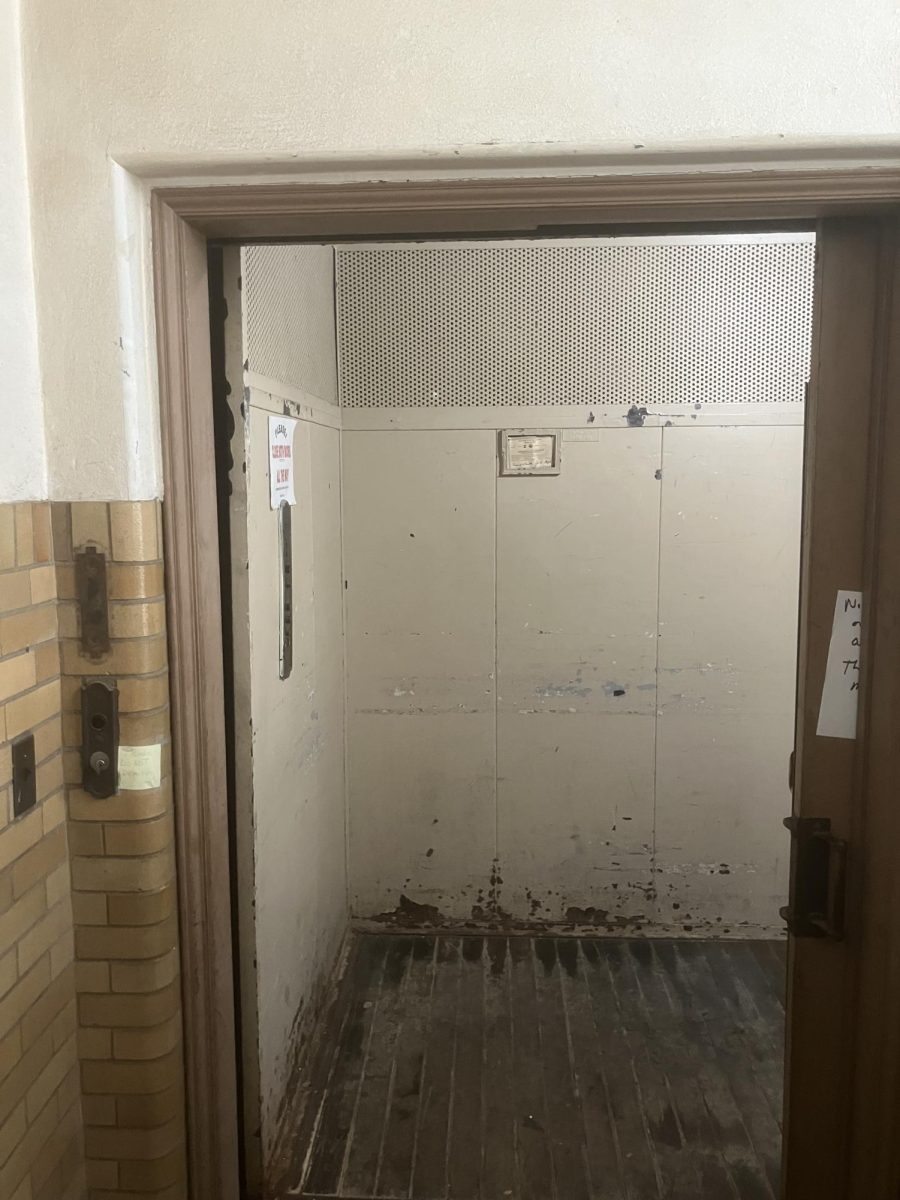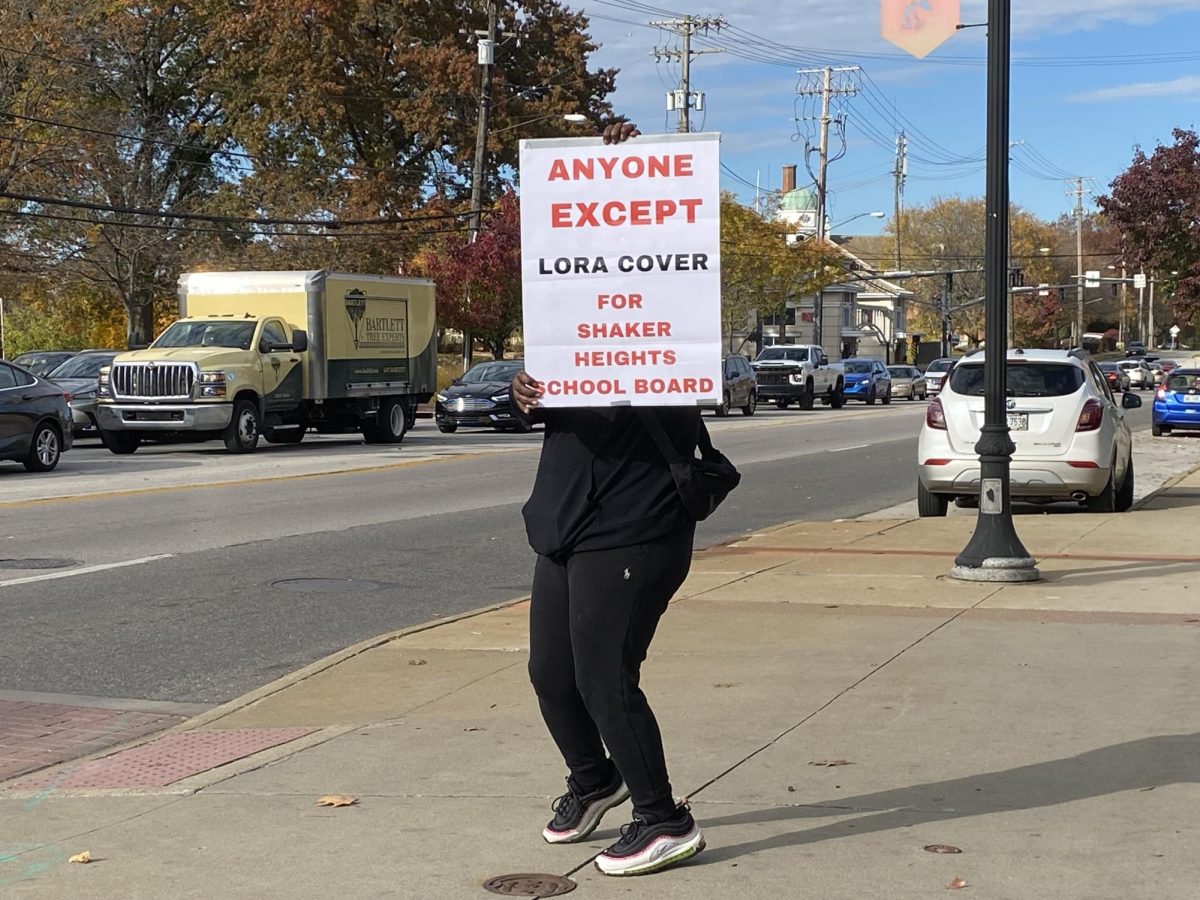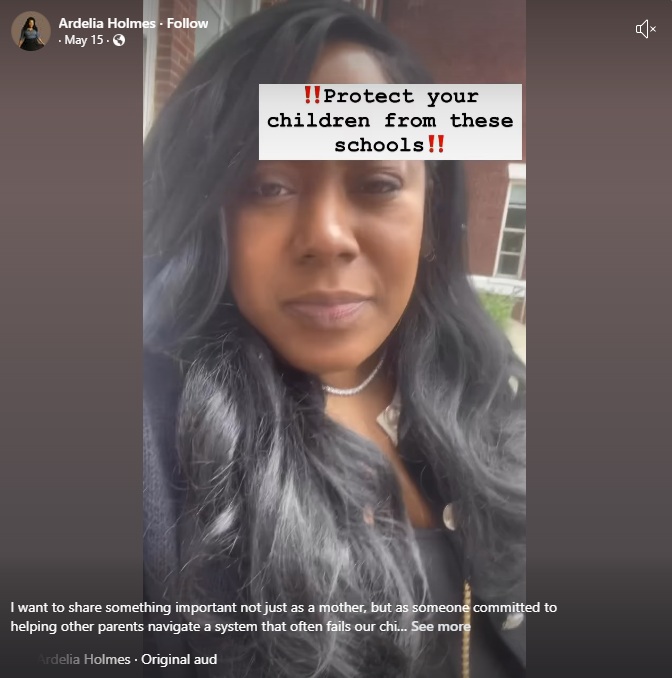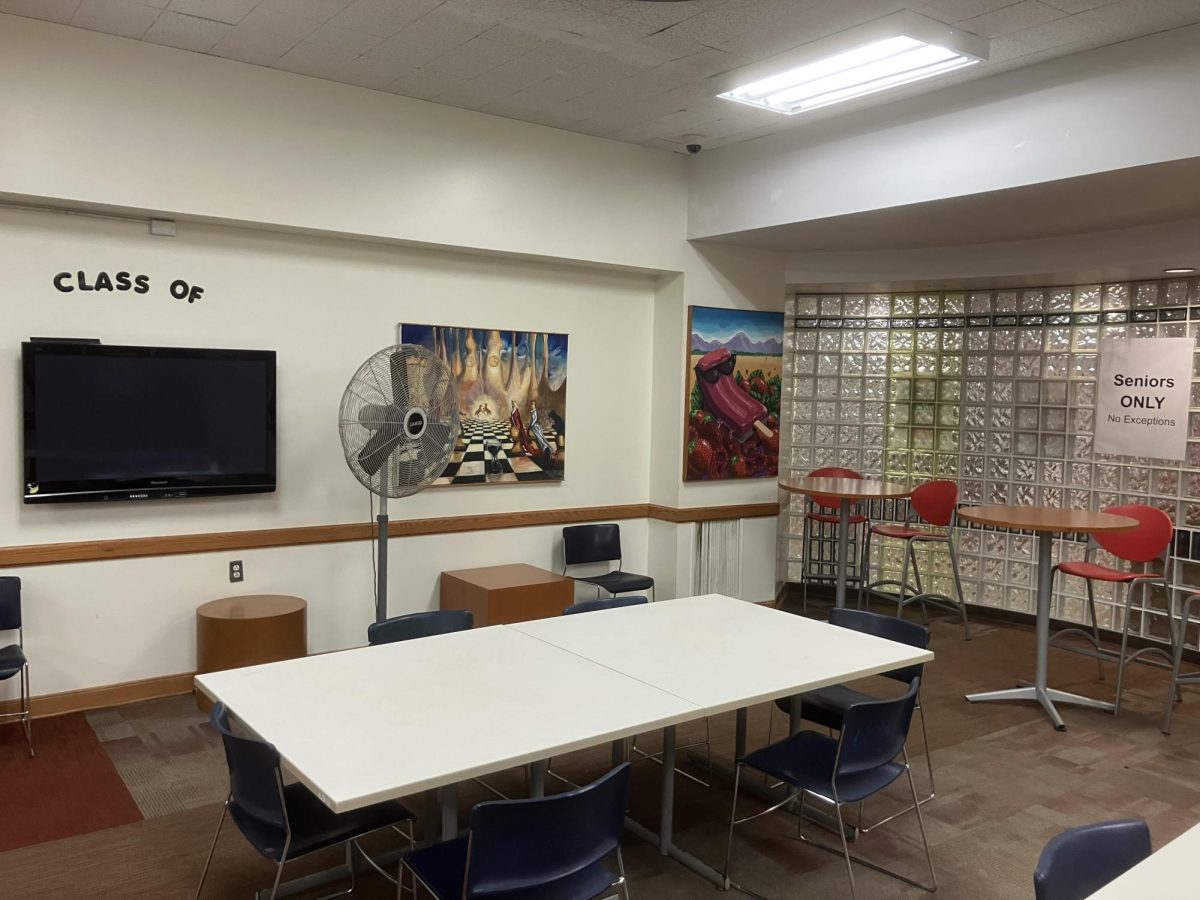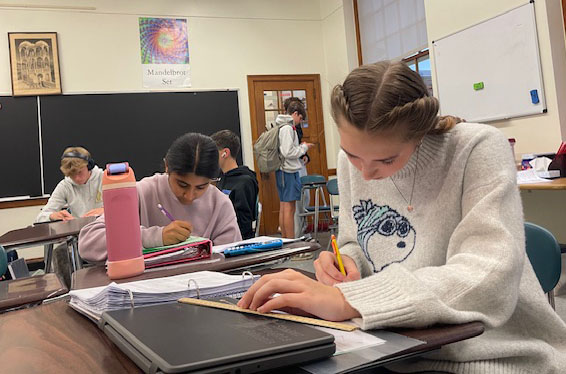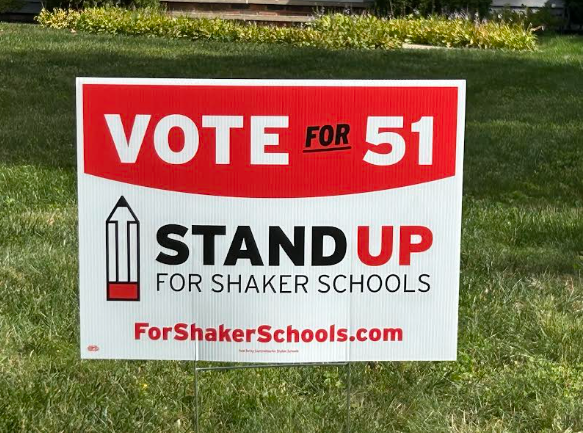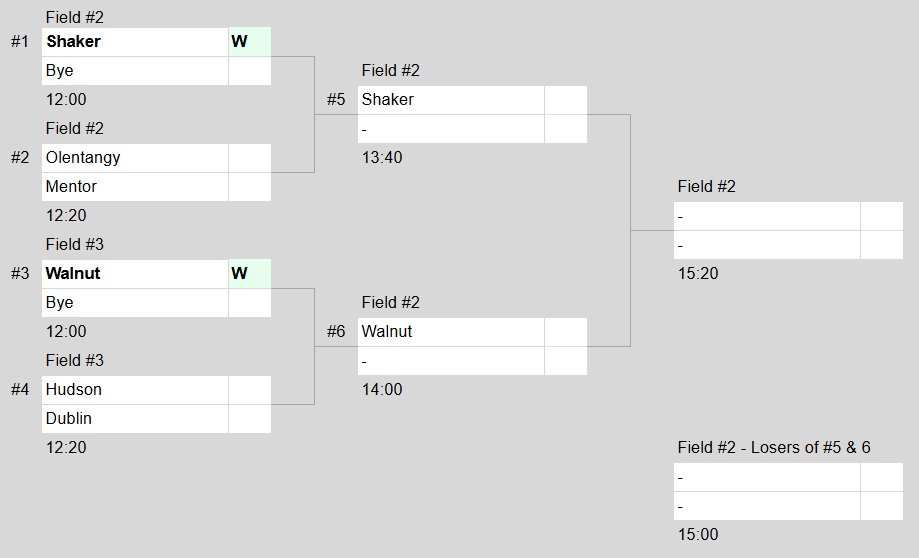Changes in cell phone policy are imminent for the 2024-2025 school year.
The district held a public meeting May 14 in the upper cafeteria to gather feedback about its developing cell phone policy. Attendees, including students, family and staff, uniformly expressed support for increased cell phone restrictions.
The meeting featured seven panelists: students and staff from the middle school and high school; a Shaker Heights Police detective; and a parent. Director of School Leadership Felecia Evans led the meeting and presented survey data and the district’s draft policy. Attendees were prompted to talk among themselves then share their ideas with the panel.
The proposed cell phone policy for grades 6-12 states that Yondr pouches would be used to manage cell phones, smart watches, AirPods and other devices. Students would be responsible for bringing Yondr pouches to school daily. Lost or damaged Yondr pouches would incur a replacement fee of $30.
Administrators would grant exceptions for health-related or special education needs.
However, this policy isn’t just the district’s idea. Gov. Mike DeWine signed into law House Bill 250 on May 15. It requires public schools to create written policies within 90 days that restrict student cell phone use during school hours.
At the meeting, the disaggregated results of a district survey that asked whether SHHS should have greater restrictions on cell phone use were shared. More than 3,000 people completed the survey, and 60 percent of students in grades 3-12; 85 percent of families; 92 percent of certified staff; and 51 percent of classified staff answered yes.
Emily Geier, a social worker at the middle school, said that cell phone use in schools is a major problem. “I have never seen a more devastating circumstance. It is the most extreme change for the worse that I have witnessed,” she said. Students cling to their phones despite knowing the harm they cause. “They are very well aware, but they still say they need it,” she said.
Principal Eric Juli said that he has noticed how difficult it is for students to give up their phones when he asks. “It’s like [I’m saying] ‘Give me your arm, give me your left leg,’ and they couldn’t possibly do that,” he said.
Juli said the pouches are a measure to boost student engagement and prevent fights. “The best way to treat an addiction is not to just punish,” he said.
Community members cited poor grades, lack of focus and decreased social interaction as negative effects of unlimited student cell phone use.
Middle school counselor Chamaine Keith said that while she proctored a state test, she saw some students rush through it to get their phones back. After learning that they could not access their phones until the testing period ended, more students took their time during the next day’s test, she said.
“I see a lot of disengagement, walking with their heads down looking at their phones,” Keith said of middle school students during an interview.
Board of Education member Pam Scott said that Shaker needs to put resources behind this effort. “This is going to affect a lot of students’ social-emotional health, and to be able to support while we’re implementing this would be a game changer,” she said in an interview after the meeting.
BOE member Doug Wang said the policy should be enforced equitably. “Often we punish different groups differently,” he said after the meeting.
Parent Martinique Future said that students feel ostracized without their phones, and Yondr pouches fix that. Said Future, “If everybody’s phone is locked up, there’s no peer pressure.”
A version of this article appears in print on page 3 of Volume 94, Issue 2, published May 24, 2024.

